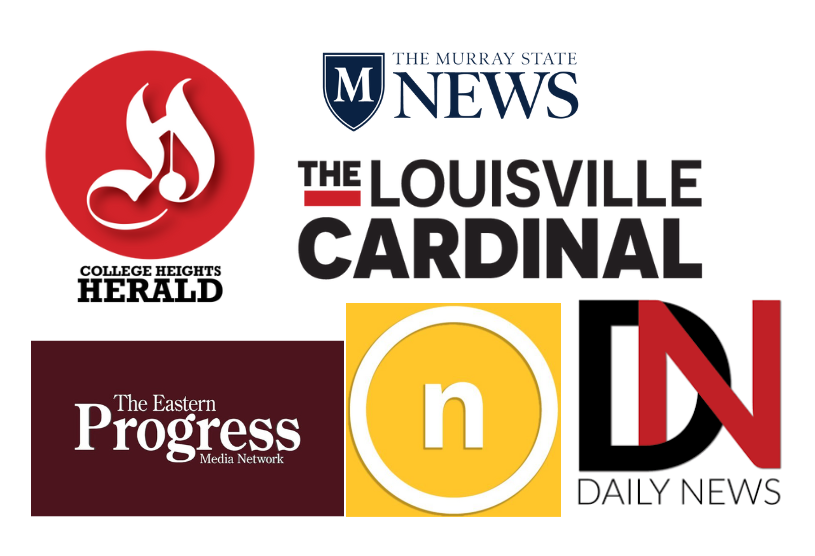Editor’s Note: This editorial is a collaborative effort with the College Heights Herald at Western Kentucky University, Louisville Cardinal at the University of Louisville, Murray State News at Murray State University, The Northerner at Northern Kentucky University, Ball State Daily News at Ball State University and Eastern Progress at Eastern Kentucky University.
On Oct. 14, administrators at Indiana University Bloomington terminated Jim Rodenbush, IU director of student media, after he refused to censor content for the Indiana Daily Student, which is IU’s student-led news publication.
Rodenbush denied the university’s demand to instruct students not to publish any news content in their homecoming special edition, a request that directly ignored precedents set by the IDS’ media charter.
“This Charter reaffirms that student media operating under its provisions are declared limited public forums where final content decisions and responsibility rest with duly appointed student editors and managers,” the charter, which was set by IU trustees in 1969, states.
IDS leaders asked the administration to overturn its decision. The response was to cut IDS print entirely.
IDS Co-Editors-in-Chief, Mia Hilkowitz and Andrew Miller, said in an email statement to the Herald:
“IU decided to fire Jim Rodenbush after he did the right thing by refusing to censor our print edition. That was a deliberate scare tactic toward student journalists and faculty. The same day, the Media School decided to fully cut our physical paper, fully ensuring we couldn’t print news. We’re losing revenue because of that decision.
We want to make it abundantly clear that our resistance to the Media School’s directive isn’t about print itself. It’s about maintaining our editorial independence. If IU can irrationally justify censoring stories as a ‘business decision,’ what stops them from applying this thinking to the news and investigative stories that run on our website and social media? IU has no legal right to dictate what we can and cannot print in our paper. Is this the best use of our time or the university’s time? We should be working toward financial stability, not censorship.
Once again, we are asking IU to reverse course — a necessary action to prove they value our editorial independence and rights.”
Student media is a cornerstone of many college campuses around the nation, but especially at IU. The IDS has 38 national Pacemaker Awards as of Oct. 18. If this censorship can happen at IU, it can happen at any student news publication.
If this decision stands, it would set a precedent that other universities can get away with such blatant censorship, and it should be alarming to all. We, along with so many others, are calling for a reversal of this decision and transparency from IU administrators on how this decision could ever happen.
This situation is about the right of journalists to report freely, and the First Amendment protects this right. When IU steps in to control content, it goes against the First Amendment and its own media charter. Student newspapers are essential because they keep universities honest, sharing stories and information that matter to students. Taking away this independence hurts the entire campus community, which is why it’s important that we, as student media outlets, stand up for each other in an effort to prevent universities from silencing our voices.


